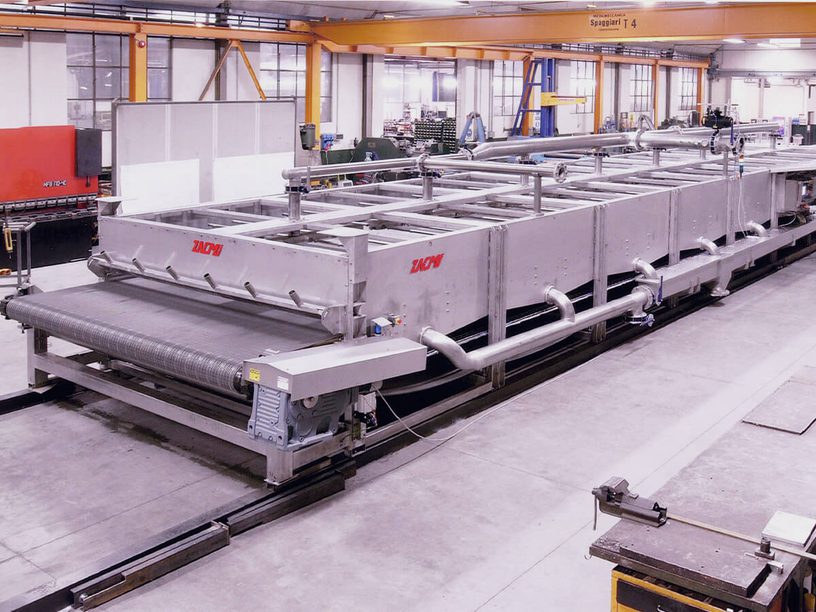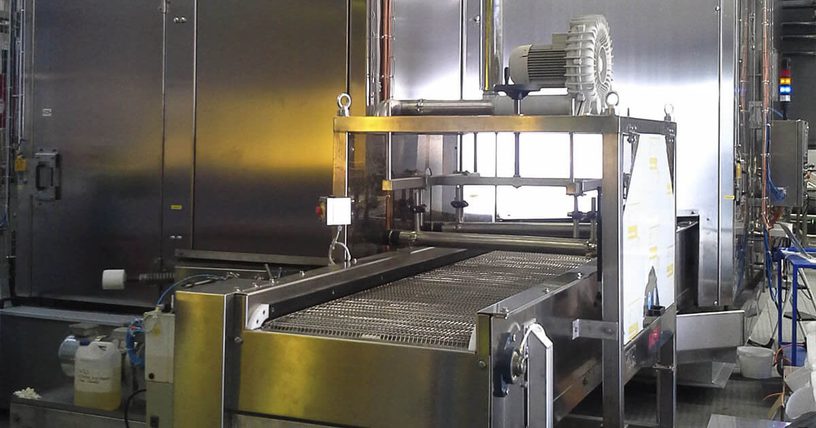
RELATED PRODUCT BRANDS
EXPLORE OTHER PROMACH BUSINESS LINES
ProMach is your partner from start to finish. Our product brands are grouped into distinct business lines that make the most sense to our customers, covering every function of the production line: Filling, Bottling & Capping, Decorative Labeling, Flexibles & Trays, Pharma, Handling & Sterilizing, Labeling & Coding, Robotics & End of Line, and Systems & Integration.
learn morePasteuriser

Pasteurisation is a fundamental process for food safety and is used on a vast range of food products, such as: milk, fruit juice, sauce, honey and jam.
In fact, the pasteurisation process is a thermal treatment used to guarantee the products’ safety and to extend their duration.
This process consists in exposing the food products to high temperatures for a sufficient amount of time to destroy any harmful bacteria and other substances that could cause product deterioration.
Pasteurisation phases and advantages
There are various pasteurisation methods, however, the most common is where the food product undergoes the exposure to high temperatures, ranging from 60°C to 85°C for a sufficient amount of time to destroy any bacteria or other pathogens.
Apart from guaranteeing food safety, pasteurisation also has other advantages. For example, it helps to preserve taste, colour and consistency of food products, making it more appealing to the consumer. Pasteurisation can also contribute to reducing the need for artificial additives, such as preservatives and colouring, thus maintaining a more natural quality of the product.
Spiral Pasteurizer Cooler

Zacmi pasteurising machinery
ZACMI’s production range includes machinery that is used both for the pasteurisation and cooling processes:
- The Modular Pasteurising and Cooling Tunnel
ZACMI Pasteurisers stand out for their state-of-the-art design, reliability and the use of high quality components, that ensure the best performance across the entire production process.